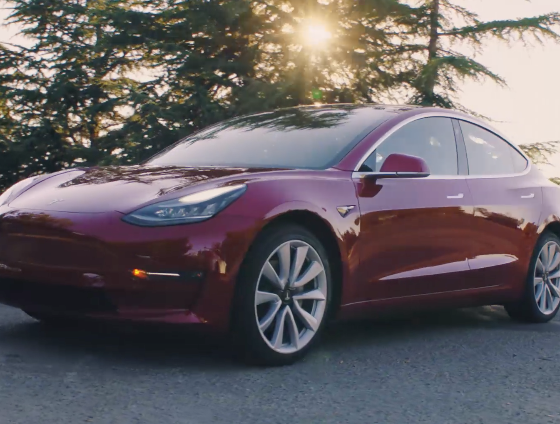“The Most Important Vehicle of the Century”
Those aren’t my words. That is what Motor Trend glowingly called the Tesla Model 3 when they were fortunate enough to take a test drive in one of  the first few vehicles on the road. I haven ’t been in one yet, but I am eager to get behind the wheel.
the first few vehicles on the road. I haven ’t been in one yet, but I am eager to get behind the wheel.
The Ford Model T is considered the most important vehicle of the last century. Before the Model T, the automobile was an expensive toy for the wealthy. Each one was hand made in small quantities. The Model T was mass produced on an assembly line and priced for common man. In 1926, it sold for $260, about $3600 in today’s money. The 15 million that were produced made cars available to the middle class for the first time and completely reshaped the American landscape.
Certainly the Tesla Model 3 is already one of the most anticipated vehicles in history. When Tesla first began taking orders for it in March 2016, over 300,000 people plunked down $1,000 in the first week to get a spot in line. Nothing like that had ever happened before. Elon Musk recently told reporters the line is now up to 455,000.
By the end of this year, Tesla plans to ramp up production of the Model 3 to 20,000 per month, which is a bit more than all the plug-in vehicles sold monthly in the U.S., combined. Clearly, that will not be simple. In his remarks at the launch of the Model 3, Elon Musk observed that they were heading into a “manufacturing hell” over the coming months. But if they can deliver on that goal and the car dazzles the rest of us the way that it has the good folks at Motor Trend, then it might just be the most important vehicle of the century.
The most significant thing about the Model T was not just the car itself, but the way it forced Ford’s competitors to respond and changed the whole industry. When the last Model T rolled off the assembly line in 1927, all car manufacturing had moved to assembly lines and prices had dropped precipitously.
The Model 3 could just be the car that demonstrates that electric drive really is better, consumers truly want it, and forces the rest of the industry to respond or be left behind.


